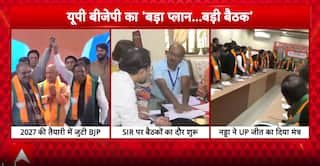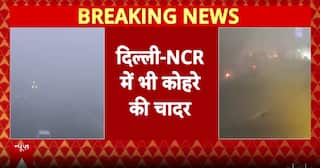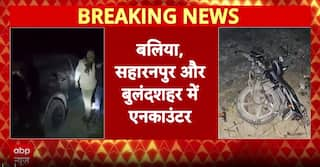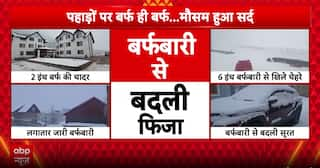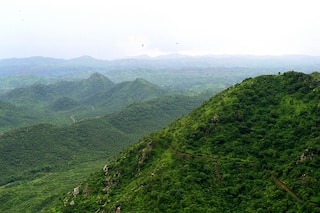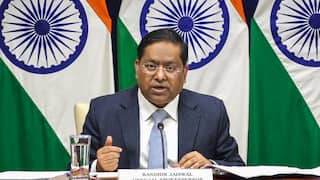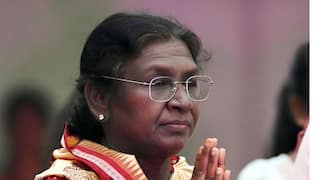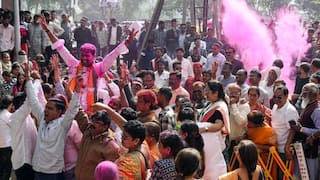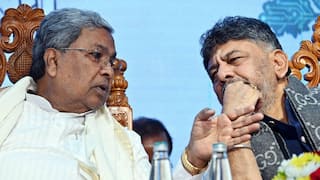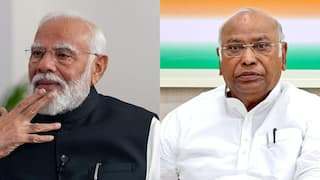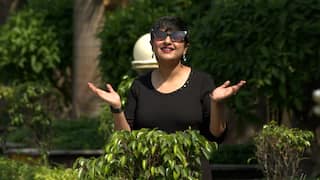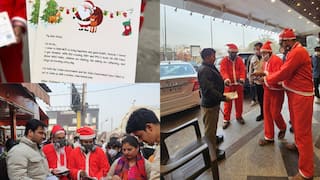Explorer
The Solidarity of Colored Peoples: A Tribute to E S Reddy, Anti-Apartheid Activist
Enuga Sreenivasulu Reddy, 96, died on 1 November 2020 at his home in Cambridge, Massachusetts. Known to comrades and friends as ‘ES’ Reddy, his death marks a great loss to the international solidarity movement that mobilized against apartheid. Read On.

Getty Images
On the 1st of this month, Enuga Sreenivasulu Reddy passed on. Not many people have heard of him, outside some circles of Gandhian scholars, anti-apartheid activists, and a smaller number of scholars and students of human rights. The New York Times noted his passing with a warm and generous obituary, and the President of South Africa, Cyril Ramaphosa, was effusive in his praise of Reddy, whom he lauded as “a man of principle and commitment to human rights; but above all, we remember him for epitomizing social solidarity.” It is characteristic of the shocking insularity into which India has fallen, and the near-total disregard in the middle class for what happens in the world outside the US and Pakistan, and to some extent China, that the Indian press took no notice of the passing of this gentle colossus who was born in India in 1925—except, not surprisingly, for an obituary penned by Ramachandra Guha. The first volume (2013) of Guha’s biography of Gandhi bears this dedication: “For E. S Reddy -- Indian patriot, South African democrat, friend, and mentor to Gandhi scholars of all nationalities.” Guha is generous with his praise, rightfully so, but his judgment that Reddy was the “mentor to Gandhi scholars of all nationalities” is rather erroneous: the pity of it is that few were even familiar with Reddy, and even fewer used Reddy’s work—those being the ones who had an abiding interest in Gandhi’s South African years and, contrary to the received view, his continuing interest to the end of his life in what was transpiring in South Africa.
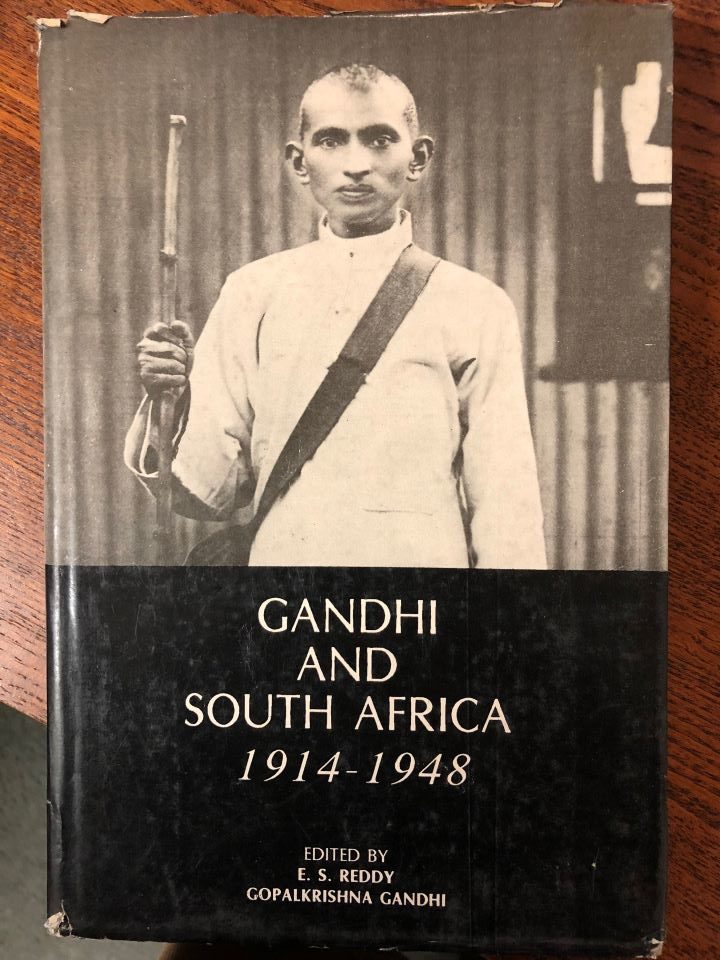 It is not as a scholar of Gandhi but rather as one of the leading lights in the movement against apartheid that Comrade Reddy, as members of the African National Congress recognized him, earned the gratitude of South Africans and human rights activists the world over. His name is seldom taken alongside the luminaries—Albert Luthuli, Nelson and Winnie Mandela, Oliver Tambo, Ahmed Kathrada, Mac Maharaj, Billy Nair, Walter, and Albertina Sisulu, Fatima Meer, others too numerous to mention—with whom the long struggle in South Africa against apartheid is associated, but Reddy not only belonged in that league but was singular in the role that he played in bringing South Africa to its knees. South Africa indubitably furnishes the best example in the modern history of the collective deployment of sanctions against a nation-state thought to be in egregious violation of the rights of certain of its subjects. Reddy had a critical role to play in marshalling world opinion against South Africa: he spearheaded for over two decades the UN’s efforts against apartheid as principal secretary of the Special Committee Against Apartheid and subsequently as Director of the UN Centre Against Apartheid.
It is not as a scholar of Gandhi but rather as one of the leading lights in the movement against apartheid that Comrade Reddy, as members of the African National Congress recognized him, earned the gratitude of South Africans and human rights activists the world over. His name is seldom taken alongside the luminaries—Albert Luthuli, Nelson and Winnie Mandela, Oliver Tambo, Ahmed Kathrada, Mac Maharaj, Billy Nair, Walter, and Albertina Sisulu, Fatima Meer, others too numerous to mention—with whom the long struggle in South Africa against apartheid is associated, but Reddy not only belonged in that league but was singular in the role that he played in bringing South Africa to its knees. South Africa indubitably furnishes the best example in the modern history of the collective deployment of sanctions against a nation-state thought to be in egregious violation of the rights of certain of its subjects. Reddy had a critical role to play in marshalling world opinion against South Africa: he spearheaded for over two decades the UN’s efforts against apartheid as principal secretary of the Special Committee Against Apartheid and subsequently as Director of the UN Centre Against Apartheid.
Reddy’s involvement in African affairs has a long history to which a future biographer can pay justice in the years ahead, but one of the more scintillating bits is his involvement in the Council on African Affairs, an organization to which Paul Robeson and W. E. B. Du Bois lent their names but which the US government sought to discredit as a front for subversive communist activities. The dismantling of this organization in 1953, among other circumstances, prompted Reddy to find another outlet where he could channel his anti-colonialism, and he gravitated towards the United Nations where India was visibly active in attempting to keep South Africa accountable to the world. Though severe racial discrimination had been practiced in South Africa for decades, it was only in 1948 that apartheid as an official policy was set in stone. The heinous piece of legislation known as the Group Areas Act followed swiftly, in 1950, and the same year saw the banning of the Communist Party and the initiation of a campaign of civil disobedience, the chief architect of which was Albert Luthuli—a man who, much like Rev. Martin Luther King some years later, took his inspiration in equal parts, so to speak, from Jesus and Gandhi. It may be said that Reddy’s views were crystallized in this crucible of fiery and turbulent politics.
I never had the good fortune of meeting Reddy, but as a graduate student in the 1980s, I began receiving the publications of the UN Centre Against Apartheid. Though Reddy retired from the UN in the mid-1980s, his imprint was visible in the “Notes and Documents” produced by the Centre throughout the decade of the 1980s. There is insufficient appreciation these days of the herculean efforts of the anti-apartheid activists outside South Africa to internationalize the horrors of the apartheid regime from the 1950s through the 1980s—a time when the US was often hostile to extending hospitality to these activists, preoccupied as it was with the containment of the Soviet Union, assisting countries in liquidating communists, and enabling corporations that were all to ready to invest in South Africa, seen as practically the only viable state in a “dark continent” and a crucial ally in the war against communism. As Reddy wrote in a 1988 UN publication marking the 25th anniversary of the Special Committee against Apartheid, “When the Special Committee was established, not a single Western country supported the simple request to end any collaboration and fraternization with the regime of apartheid.” Reddy, perhaps more so than anyone else, was responsible for steering world opinion against the apartheid regime of South Africa. Sean MacBride, himself a Nobel Peace Laureate, put it plainly in 1985 when he said of Reddy that “there is no one at the United Nations who has done more to expose the injustices of apartheid and the illegality of the South African regime than he has.”
Upon his departure from the United Nations in 1985, where at his retirement Reddy held the post of assistant secretary-general, Reddy turned to Gandhi. It is said that both his parents, who made their home some 150 kilometres north of Madras, were freedom fighters and the story has been told—a story that is told of many others, not always accurately or truthfully—that his mother listened to the call of Gandhi and sold her jewelry to raise money for his campaign against untouchability. The future biographer of Reddy will doubtless have something to say on what moved Reddy to delve into the life and work of Gandhi, but it must be said that Reddy in nearly all of his work located Gandhi within the larger history of the contributions of Indians to the struggle for justice and equality in South Africa. The title of his 1993 edited book, Indian South Africans in Struggle for National Liberation, is revealing in this respect. The book sought to bring to the fore the testimony of Molvi Ismail Ahmad Cachalia at the infamous Treason Trial (December 1956-1961)—an attempt by Reddy not so much to highlight the contributions of Indians, but rather to point to the solidarity of all oppressed people.
The most enduring work from Reddy’s oeuvre, however, must be the book that he co-edited with Gopalkrishna Gandhi, entitled Gandhi and South Africa 1914-1948. What is striking is that accounts of Gandhi’s involvement in South Africa generally take his departure from there for India on 18 July 1914 as the logical culmination point of his early career. South Africa becomes the mere “backdrop” to his “real” political career in India where, less than five years after his arrival, he would be anointed the “Mahatma”. Reddy and Gopal Gandhi’s anthology of Gandhi’s pronouncements and writings on South Africa suggest the extreme shortsightedness of such a view: it obscures the vital interest that Gandhi retained in South Africa, where his second son Manilal would continue to make his home, just as it prevents comprehension of the fact that the solidarity of the oppressed was a signal part of Gandhi’s worldview. Gandhi left South Africa but South Africa never left Gandhi. It may be that, as one gets older, one begins to reminiscence over one’s childhood and youth. Even allowing for that, it is remarkable that South Africa was very much on Gandhi’s mind in the last days of his life. At his prayer meeting on January 28, two days before Gandhi would fall by an assassin’s bullets, he spoke at length about the continuing struggle in South Africa, concluding his speech with these words: “I have myself lived in South Africa for twenty years and I can therefore say that it is my country.”
In the autumn of his life, as the anthology by Reddy and Gopal Gandhi shows, Gandhi was visited by Dr. Yusuf Dadoo and Dr. Monty Naicker, two stalwarts of the struggle in South Africa and leading figures in the Transvaal Indian Congress and the Natal Indian Congress. They met with him on a number of occasions between March and May 1947 and Gandhi told them, “The slogan today is no longer merely ‘Asia for the Asians’ or ‘Africa for the Africans’ but the unity of all the oppressed races of the earth.” I think it is fair to say that Enuga Sreenivasulu Reddy was wholly animated by this idea his entire life. The fact that this son of India, who was in many respects a soul-mate of Gandhi and a fellow sojourner on the hard and difficult road to truth, has been so neglected by his native country is yet another ominous sign of the xenophobic provincialism into which India has sunk.
(Vinay Lal is a writer, blogger, cultural critic, and Professor of History at UCLA)
Disclaimer: The opinions, beliefs, and views expressed by the various authors and forum participants on this website are personal and do not reflect the opinions, beliefs, and views of ABP News Network Pvt Ltd.
 It is not as a scholar of Gandhi but rather as one of the leading lights in the movement against apartheid that Comrade Reddy, as members of the African National Congress recognized him, earned the gratitude of South Africans and human rights activists the world over. His name is seldom taken alongside the luminaries—Albert Luthuli, Nelson and Winnie Mandela, Oliver Tambo, Ahmed Kathrada, Mac Maharaj, Billy Nair, Walter, and Albertina Sisulu, Fatima Meer, others too numerous to mention—with whom the long struggle in South Africa against apartheid is associated, but Reddy not only belonged in that league but was singular in the role that he played in bringing South Africa to its knees. South Africa indubitably furnishes the best example in the modern history of the collective deployment of sanctions against a nation-state thought to be in egregious violation of the rights of certain of its subjects. Reddy had a critical role to play in marshalling world opinion against South Africa: he spearheaded for over two decades the UN’s efforts against apartheid as principal secretary of the Special Committee Against Apartheid and subsequently as Director of the UN Centre Against Apartheid.
It is not as a scholar of Gandhi but rather as one of the leading lights in the movement against apartheid that Comrade Reddy, as members of the African National Congress recognized him, earned the gratitude of South Africans and human rights activists the world over. His name is seldom taken alongside the luminaries—Albert Luthuli, Nelson and Winnie Mandela, Oliver Tambo, Ahmed Kathrada, Mac Maharaj, Billy Nair, Walter, and Albertina Sisulu, Fatima Meer, others too numerous to mention—with whom the long struggle in South Africa against apartheid is associated, but Reddy not only belonged in that league but was singular in the role that he played in bringing South Africa to its knees. South Africa indubitably furnishes the best example in the modern history of the collective deployment of sanctions against a nation-state thought to be in egregious violation of the rights of certain of its subjects. Reddy had a critical role to play in marshalling world opinion against South Africa: he spearheaded for over two decades the UN’s efforts against apartheid as principal secretary of the Special Committee Against Apartheid and subsequently as Director of the UN Centre Against Apartheid.
Follow Blog News on ABP Live for more latest stories and trending topics. Watch breaking news and top headlines online on ABP News LIVE TV
View More









